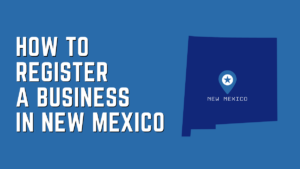Are you interested in establishing your company’s presence in Colorado? Registering a business name in Colorado is an essential step to ensure that you comply with the law and build brand recognition.
This beautiful state offers a simple and efficient registration process that caters to different types of businesses. Whether you opt for an LLC, corporation, or trade name, we’re here to guide you through the necessary steps for registering your business name in Colorado.
How to register a business name in Colorado with business registration services. If you want added convenience and expert help, consider partnering with ZenBusiness, a reliable service that can streamline the registration process so that you can focus on growing your business. Let’s begin your entrepreneurial journey in the Centennial State!
>> Get Started With ZenBusiness >>
4 Steps to Register Your Business Name in Colorado
How to register a business name in Colorado. To establish your entrepreneurial presence in Colorado, it’s crucial to register your business name. To assist you with this process, we have outlined four easy steps for officially registering your business name in the Centennial State.
Step 1: Choose Your Business Structure in Colorado
When embarking on a business venture in Colorado, one of the most important choices you will face is determining the right business structure. Your decision will be influenced by the nature of your enterprise and your plans for growth. Let us delve deeper into the various options that are available and how they operate within the Centennial State.
Registering your business with the Colorado Secretary of State is only mandatory if you choose a structure that necessitates incorporation. Here, we present you with an array of different alternatives to consider:
Sole Proprietorship
A sole proprietorship is the most basic form of business organization in which the owner and the business are regarded as one legal entity. This implies that the owner bears personal liability for any debts and responsibilities of the company.
Establishing a sole proprietorship in Colorado is a straightforward process with minimal legal and administrative obligations. While there’s no requirement to register it with the state, obtaining necessary local permits or licenses may be essential.
General Partnership
In a general partnership, multiple individuals collaborate to distribute the earnings and losses of the business. Each partner assumes personal liability for the company’s financial obligations and legal duties.
Unlike corporations, there’s no requirement to register a general partnership with the state formally. However, it may be necessary to file a “Colorado Assumed Name Certificate” (DBA) in the specific county where your business is located.
Limited Partnership (LP)
In a restricted collaboration, there exist managing partners who are accountable for overseeing the enterprise and possessing unrestricted personal accountability, along with limited partners who invest capital and have restricted liability. To institute an LP in Colorado, submit a “Certificate of Limited Partnership” to the Colorado Secretary of State.
Limited Liability Company (LLC)
A Limited Liability Company (LLC) offers the benefit of liability protection, similar to a corporation, along with the tax advantages and simplicity of a partnership.
In Colorado, establishing an LLC involves submitting “Articles of Organization” to the Colorado Secretary of State and developing an Operating Agreement that outlines the company’s ownership structure and management. This ensures flexibility in legal protection and business operations within the state.
Corporation
A corporation provides limited liability protection and is considered a distinct legal entity from its shareholders. In Colorado, there are two classifications of corporations: C-corporations and S-corporations.
- C-corporations feature more intricate tax frameworks and are susceptible to double taxation, being taxed at both the corporate and individual levels
- S-corporations benefit from pass-through taxation, directing profits and losses directly to the shareholders’ personal tax returns and avoiding double taxation
To establish a company in Colorado, submit the “Articles of Incorporation” to the Colorado Secretary of State. The specific type of corporation will determine the requirements. Corporations involve additional formalities such as drafting bylaws, issuing shares, and conducting regular board and shareholder meetings.
Carefully evaluate the business structure that aligns with your requirements for liability protection, taxation, and management obligations in Colorado. If you require guidance in making this decision, seek advice from a legal or business expert.
>> Register Your Colorado Business Name With ZenBusiness >>
Step 2: Select a Unique Business Name in Colorado
How to register a business name in Colorado. When it comes to naming your business in Colorado, it’s not just about being creative. It’s important to follow state regulations and ensure your name is unique. Let’s explore the key factors in choosing a business name in Colorado.
Legal Entity Name
When you’re registering a business in Colorado, it’s extremely important to have an original legal entity name that acts as the official identification for your company according to the state. No other business must have the same name as yours.
Colorado’s laws concerning naming have particular regulations for using company suffixes such as LLC, LP, or Corp. The chosen name must accurately represent the nature of the business that you’re registering. To verify if your desired name is available, you can consult the Colorado Secretary of State’s database for businesses.
Trademark
A trademark is essential for safeguarding your business name or logo through intellectual property protection on a national scale. Conduct a comprehensive search in the USPTO database to ensure that your desired name or logo has not already been registered by another party.
By registering a trademark, you acquire exclusive rights to use the name or logo for similar goods or services throughout the country, thus preserving your brand’s identity. However, understand that obtaining a trademark doesn’t automatically grant unrestricted usage in every situation.
Trade Name (DBA) Option
In Colorado, businesses can use a different name for their operations instead of their official legal name. This alternative name is referred to as a Trade Name or Doing Business As (DBA) name. To officially register a trade name, submit a Statement of Trade Name to the Colorado Secretary of State.
While trade names are governed by federal trademark laws, they don’t necessarily need to be unique at the state level. This flexibility allows business owners more options in terms of how they want their brand to be recognized and promoted.
By carefully considering and selecting these naming options in Colorado, you can not only successfully register your business name but also protect your brand identity with appropriate legal measures.
Step 3: Check Business Name Availability in Colorado
How to register a business name in Colorado. Before officially registering your company, confirm that the desired name isn’t already in use. Here’s a comprehensive guide on how to conduct a meticulous search for business name availability:
Trademark Search
Start by verifying whether the name you want for your business has already been trademarked. Remember that federal trademarks hold more weight than state-level registrations.
Go to the website of the U.S. Patent and Trademark Office (USPTO) and use their TESS Search tool to conduct a search for federal trademarks. If you discover that your desired name is already trademarked, then it’s necessary to choose a different business name instead.
Colorado Business Name Search
After ensuring that your name isn’t already trademarked, the next step is to check its availability at the state level. Make use of the Colorado Business Database Search tool to examine registered business names in the state. While conducting your search, be sure to verify that your exact business name and any similar names aren’t already being used by other companies.
Website Domain Search
Once you have confirmed that your business name isn’t trademarked in Colorado, it’s a prudent move to verify if the .com variant of the name is also unclaimed. While not all businesses may necessitate a website, it’s advisable to secure the .com domain for your business name if feasible.
By registering the .com rendition of your business name through ZenBusiness, you ensure exclusive ownership of that website’s moniker. This step offers an inexpensive means to safeguard your brand from potential misuse by others.
By adhering to these three procedures, you can confidently select a business name that complies with legal requirements and stands out among others in Colorado.
>> File a Trademark With ZenBusiness >>
Step 4: Form Your Business With the State of Colorado
Once you have settled on the structure and name of your business, the next important task is to register it with the state of Colorado officially. This is a crucial step as it not only establishes your business as a legitimate entity but also ensures that you’re in compliance with all relevant state regulations.
If you have formed a Colorado LLC, you will need to submit the Articles of Organization to the Colorado Secretary of State. Fortunately, this can be easily done online. If you’re opting for a Colorado corporation, you will be required to file the Articles of Incorporation with the Colorado Secretary of State.
You May Also Want to Know
Protect Your Business Name With a Trademark
Once you have verified the availability of your desired business name and secured it, you have the choice to safeguard it through trademark registration. This process involves applying for a trademark, which typically incurs costs ranging from $225 to $400, besides any fees charged by attorneys. A renewal fee must be paid every 10 years.
While registering a trademark can require a considerable investment, it provides nationwide protection under federal law. This legal protection gives you an advantage if others attempt to use a similar name for their own businesses. For most local small businesses, this level of protection may not be necessary unless there are plans for national expansion.
>> File a Trademark With ZenBusiness >>
How to File a Colorado Fictitious Name – DBA?
Follow these straightforward instructions to register a Colorado Fictitious Name, commonly referred to as a Doing Business As (DBA) name:
- Choose a Name: Choose a unique fictitious name for your business in Colorado, ensuring it’s not already in use by another business.
- Check Availability: Verify the availability of the chosen name by conducting a search on the Colorado Secretary of State’s website or database.
- Complete the Form: Obtain the appropriate DBA form from the Colorado Secretary of State’s website or office. Provide accurate information, including your business name, address, and the chosen fictitious name.
- Notarize (If Required): Some Colorado counties may require notarization of the DBA form. Confirm with your county clerk’s office if this step applies to you.
- File the Form: Submit the completed DBA form to the Colorado Secretary of State’s office, either in person, by mail, or online, along with any necessary fees.
- Publish (If Required): In certain counties, publishing a notice of your fictitious name in a local newspaper may be necessary for a specific period. Check with your county clerk’s office to determine if publication is required.
- Renew (If Applicable): Be aware of any expiration dates for DBA registrations in Colorado and renew your fictitious name registration as mandated by the state.
That’s all! After finishing these procedures and getting your DBA registration authorized, you can use your selected made-up name to run your company in Colorado. Don’t forget to adhere to any ongoing obligations, like renewals, to maintain the good status of your DBA.
How to Change the Name of a Colorado Business?
If you find yourself when you need to modify the name of your Colorado company, there are two main approaches that you can consider.
- Trade Name (DBA Name): This choice provides you with the opportunity to run your company under a distinct title while keeping its official name intact. It benefits sole proprietorships, general partnerships, and even LLCs and corporations.
By utilizing a trade name, you can avoid the necessity of filing an amendment, which streamlines business processes. This is especially useful for individuals who wish to operate under a brand name without including the required suffixes like LLC or Inc.
- Amendment to Legal Name: If you opt to alter the official legal name of your LLC or corporation, it’s necessary to file an amendment. This requires submitting the required documents, such as the Certificate of Amendment, which can be completed electronically, along with a $25 fee for filing.
By adhering to these guidelines, you can effectively set up and sustain your company within the boundaries of Colorado.
>> Get Expert Assistance From ZenBusiness >>
Business Name Registration Laws in Colorado
When registering a business name in Colorado, most people choose to do so through the office of the Colorado Secretary of State. Here are some important factors to keep in mind:
- Check Name Availability: Before officially registering a business name, it’s crucial to perform a name availability search to ensure that the desired name isn’t already in use by another business. This search can be conducted on the Colorado Secretary of State’s website.
- Register Trade Name (DBA): If you intend to operate your business under a name other than your legal entity name (e.g., “ABC Company” doing business as “XYZ Services”), you must file a Trade Name Registration, also known as a “Doing Business As” (DBA) registration. Typically, this is submitted to the Secretary of State’s office.
- Register Entity Name: When forming a new business entity (e.g., corporation, Limited Liability Company), you’ll need to choose a distinct business name during the formation process. The name’s availability is verified as part of the entity formation filing.
- Name Reservation: If you plan to start a business but aren’t ready to register it immediately, you may be able to reserve a business name for a specific duration. This name reservation can usually be done through the Secretary of State’s office.
- Trademark Considerations: It’s important to note that registering a business name with the state doesn’t grant trademark protection. If you seek exclusive rights to use the business name, consider applying for a federal trademark through the United States Patent and Trademark Office (USPTO).
- Additional Requirements: Depending on your business’s nature and industry, there may be specific regulations or requirements that you must meet before commencing operations.
For the latest and most accurate details on Colorado’s business name registration laws, it’s advisable to refer to the website of the Colorado Secretary of State or seek guidance from a legal expert who’s well-versed in Colorado’s business registration regulations.
Bottom Line on How to Register a Business Name in Colorado
To summarize, registering your business name in Colorado signifies the thrilling beginning of your entrepreneurial adventure. By handpicking a distinctive business structure and name, completing necessary registrations, and recognizing the importance of trademark protection or a DBA name, you establish a strong foundation for success.
How to register a business name in Colorado. Leveraging the expertise and assistance provided by ZenBusiness can offer invaluable support throughout the registration process, smoothing your path to triumph in Colorado.
With endless enthusiasm and unwavering determination, you embark on an extraordinary journey, leaving an indelible mark on Colorado’s flourishing business landscape. The future holds tremendous potential as your officially registered business name paves the way forward.
>> Use ZenBusiness to Register a Business Name in Colorado >>
 Sections of this topic
Sections of this topic
















